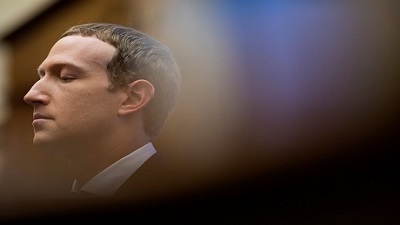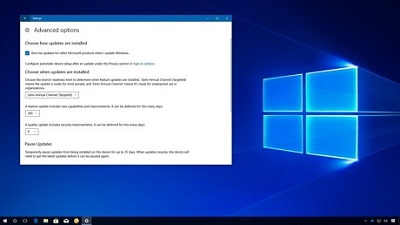|
The letter was aimed at Mark Zuckerberg, Facebook’s chief executive, and his top lieutenants. It decried the social network’s recent decision to let politicians post any claims they wanted — even false ones — in ads on the site. It asked Facebook’s leaders to rethink their stance. The message was written by Facebook’s own employees. Facebook’s position on political advertising is “a threat to what FB stands for,” the employees wrote in the letter, which was obtained by The New York Times. “We strongly object to this policy as it stands.” For the past two weeks, the text of the letter has been publicly visible on Facebook Workplace, a software program that the Silicon Valley company uses to communicate internally. More than 250 employees have signed the message, according to three people who have seen it and who declined to be identified for fear of retaliation. While the number of signatures on the letter was a fraction of Facebook’s 35,000-plus workforce, it was one sign of the resistance that the company is now facing internally over how it treats political ads. Many employees have been discussing Mr. Zuckerberg’s decision to let politicians post anything they want in Facebook ads because those ads can go viral and spread misinformation widely. The worker dissatisfaction has spilled out across winding, heated threads on Facebook Workplace, the people said. For weeks, Facebook has been under attack by presidential candidates, lawmakers, and civil rights groups over its position on political ads. But the employee actions — which are a rare moment of internal strife for the company — show that even some of its own workers are not convinced the political ads policy is sound. The dissent is adding to Facebook’s woes as it heads into the 2020 presidential election season. “Facebook’s culture is built on openness, so we appreciate our employees voicing their thoughts on this important topic,” Bertie Thomson, a Facebook spokeswoman, said in a statement. “We remain committed to not censoring political speech, and will continue exploring additional steps we can take to bring increased transparency to political ads.” Read more along with the letter on OUR FORUM. A new research report from Activate Inc. says we’re spending much less time on Facebook than we used to. In 2017, Americans spent 14 hours per month on average on the social media site, and that number had dropped 26% to 9 hours per month in 2019, Activate CEO and cofounder Michael Wolf said today at the Wall Street Journal‘s Tech Live conference in Laguna Beach, California. Facebook is still way ahead of all its competitors in terms of membership numbers. It has more than 2 billion users worldwide. But the idea that those people are spending less time on the site could mean a lot to big brands that spend hundreds of millions to advertise on Facebook. Several researchers, including eMarketer, have also tracked the movement of younger users (12-34) away from Facebook and toward services like Instagram (which Facebook owns), Snapchat, and TikTok. Facebook also has a serious consumer trust issue after misusing private user data and, for years, being less than forthcoming about how it uses personal data in its advertising operation. The government is now looking closely at Facebook and its various businesses and considering reining in the massive company via new regulations. Politicians like Elizabeth Warren have called for the government to break up Facebook. Wolf said that Facebook won’t be disrupted and defeated by a single, similar company. Rather, a number of smaller and more focused communities will systematically skim off more and more of the time people spend on the general-purpose Facebook social network. Activate says people in the U.S. now belong to an average of 5.8 social networks, and projects that number will rise to more than 10 social networks by 2023. Facebook may realize this. The trend toward niche social networks may be one reason the company has been promoting private Facebook groups as a big part of its future. For more browse to OUR FORUM. October 22, Microsoft started rolling out an optional cumulative update for Windows 10 version 1903 with fixes for critical bugs. In addition to the optional cumulative update, Microsoft also shipped a standalone package KB4523786 to make quality improvements to Windows Autopilot configured devices. Windows Autopilot is commonly used by businesses and enterprises to set up and pre-configure new devices in their organizations. Businesses also use Windows Autopilot to reconfigure, recover and reset devices in the organization, and KB4523786 comes with several fixes for such devices. A number of users have reported that Microsoft accidentally delivered KB4523786 to PCs with Windows 10 Home and Pro. If you see ‘Cumulative update for Autopilot in Windows 10 version 1903: October 22, 2019’ on Windows Update page when you check for updates, you should avoid it. Windows 10 doesn’t immediately restart after downloading the patch. Instead, it will offer you to restart the PC and schedule the restart. In this case, you can click on pause updates for 7 days and the patch will not appear again when Windows checks for updates next time. KB4523786 is supposed to be a cumulative update for Autopilot-configured devices and not for normal installations of Windows 10. In a tweet, Microsoft’s Intune team has confirmed that the update was released accidentally and it has been pulled: “Sorry for your experience! An Intune Autopilot update, which was targeted as part of the out of box experience for new devices, was incorrectly offered to customers running Windows Home edition during a regularly scheduled Windows update scan,” a Microsoft representative stated. “Once we became aware of the issue, we stopped distribution of the update. If you have already installed the update, it will not affect you. If not, there is further action required”. Further details can be found on OUR FORUM. |
Latest Articles
|


